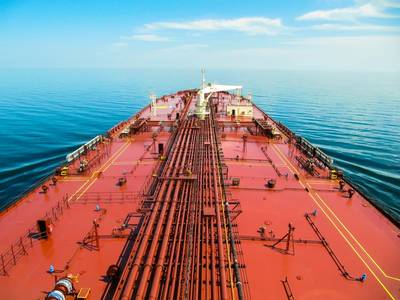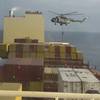India's ONGC Struggling to Move Russian Oil
India's Oil and Natural Gas Corp (ONGC) is struggling to find a vessel to ship 700,000 barrels of crude from Russia's Far East, in a growing sign that complex trades involving one of Moscow's biggest partners are being interrupted by Western sanctions, sources say.
Several Indian companies including ONGC have stakes in Russian oil and gas assets, and India has been buying more Russian crude since Moscow invaded Ukraine, snapping up the popular Urals crude grade, while other buyers have shunned Russian exports.
ONGC has a 20% stake in the Sakhalin 1 project that produces a Russian grade known as Sokol, which ONGC exports through tenders. Sokol is mostly bought by North Asian buyers and loaded from South Korea.
However, Moscow's ability to ship that grade, which requires vessels that can break through ice, is becoming harder due to concerns from shippers over reputational risk and the increasing difficulty for Russian assets to find insurance coverage.
Normally, cargoes of Sokol oil are first shipped from the De-Kastri terminal in Russia's Far East using ice class vessels to South Korea, where they are then reloaded onto a conventional tanker.
Indian refiners rarely buy the Sokol grade, as difficult logistics make the crude costly. There are a limited number of ice class vessels in the global merchant fleet that can be deployed at any time.
ONGC relies on ice-class vessels provided by Russia's state-owned Sovcomflot (SCF) for the transportation of crude to Yoesu port in South Korea, and from there the Indian company exports to buyers, mostly in North Asia.
However, sanctions imposed on Russia by the United States, Britain, the European Union and Canada after Moscow's invasion of Ukraine, in addition to specific restrictions on SCF, are making it harder for Russian ships including SCF's fleet to maintain insurance and reinsurance cover for voyages, shipping sources said.
Shipping companies are also less willing to move Russian oil in Asia, fearing the potential reputational risks involved with charters, the shipping sources added.
Last month, ONGC did not receive any bids in its tender for export of Sokol as buyers backed out due to Western sanctions.
That led to ONGC selling one cargo each to Indian state refiner Hindustan Petroleum Corp and Bharat Petroleum Corp (BPCL).
BPCL's cargo was scheduled for lifting early next month from Yeosu port in South Korea, while HPCL was awarded the cargo for lifting in end-May, according to shipping sources.
BPCL had floated an enquiry to charter a vessel from the South Korean port and sought to book the vessel Atlantis for early May shipments, shipping reports show.
The fixture failed, however, as ONGC could not arrange a vessel to Yeosu port partly due to issues with securing insurance for the voyage, sources said.
ONGC, HPCL and BPCL did not respond to Reuters emails seeking comment.
This year, India has bought more than twice as much crude from Russia in the two months since its invasion of Ukraine as it did in all of 2021.
Russia's maritime sector is grappling with the winding down of services including ship certification by leading foreign providers such as Britain's LR and Norway's DNV.
Marine fuel sellers have stopped serving vessels flying the Russian flag at major European hubs including Spain and Malta in another blow to Moscow's exports, sources with knowledge of the matter told Reuters.
The EU in March listed SCF among Russian state-owned companies with which it was "prohibited to directly or indirectly engage in any transaction" after a wind down period ends on May 15.
(Reuters - Reporting by Nidhi Verma and Jonathan Saul; Additonal reporting by Florence Tan in Singapore; Editing by Mark Potter)














